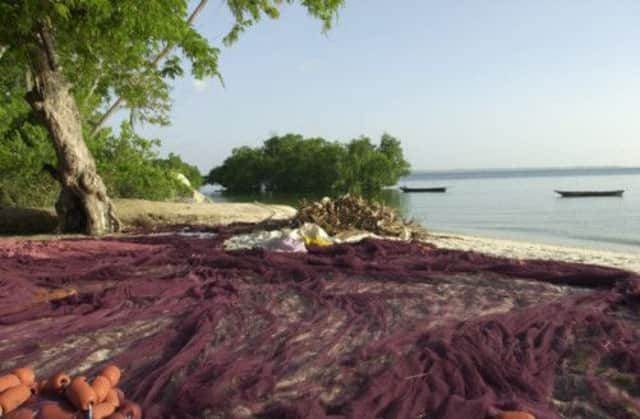African expat records donated to Highland archives


The newly-discovered material includes a Highland Games booklet with rules for the preparation of cabers and stones, while the minutes refer to numerous issues, from arrangements for an early St Andrews Day dinner on the beach of Prison Island in Zanzibar, to the theft of topsoil from the Kenyan Society’s
playing fields in Nairobi.
There is also reference to Kenyan Society committee concerns over Queen Elizabeth being recognised as “II” when there had never been a Queen Elizabeth I of Scotland.
Advertisement
Hide AdThe records, donated by an expat studying Highland history in Kenya via distance learning, will be invaluable to students studying emigration from Scotland.
Robert Lewis-Lettington, as a member of the Scottish Society of Kenya – a society for expats – became custodian of the organisation’s archives which illustrate various aspects of life in the Scots community in Africa.
The documents, which date back to 1907, include books of minutes, correspondence and event programmes from the Caledonian Societies of Kenya and Zanzibar.
Mr Lewis-Lettington, a legal consultant in Nairobi, is writing his final dissertation towards completing the university’s online postgraduate Master’s degree in the history of the Highlands and Islands.
The societies’ records shed light on the experience of expatriate Scots living in East Africa. Many Scots travelled to the area in the mid-19th century to explore, fight the slave trade and evangelise, and ended up founding the Imperial British East
Africa Company in 1888.
More Scots arrived as administrators, engineers, soldiers and missionaries after the East Africa Protectorate was established in 1895, and Caledonian societies appeared throughout the region.
Advertisement
Hide AdOriginally from Edinburgh, Mr Lewis-Lettington has been living in Kenya since 1997. He moved there for an educational exchange, but now works for the United Nations. He became involved in the Caledonian Society through events such as its annual Burns Supper and took on the role of custodian of its records as a long-serving member of the group’s committee.
Mr Lewis-Lettington stored the historical documents in a trunk in his study, but wondered if there was a better location for them.
Advertisement
Hide AdHe said: “They were not in regular use and I was concerned about their conservation and accessibility.
“I felt the National Archives in Kenya wouldn’t be the best place for them as it has challenges with resources and the general public there have a relatively low level of interest in the Scots community.
“I told Dr David Worthington from the University of the Highlands and Islands Centre for History about the records and he suggested I contact the Highland Archive Centre.”
Mr Lewis-Lettington continued: “The centre was happy to give them a home and the society was pleased to donate them as long as they would be maintained and made available for research.”
Mr Lewis-Lettington deposited the records at the Archive Centre in Inverness on a trip to Scotland in August last year. They have now been catalogued and can be viewed in the centre’s public search room.
Dr Worthington, head of the University of the Highlands and Islands Centre for History, hopes the documents will be of use to researchers.
Advertisement
Hide AdHe said: “I’m delighted that one of our students has helped to bring these records to Inverness. The materials should be of interest to people researching diaspora communities, particularly the role of Scots in 19th and 20th century East Africa.
“A number of prominent Highlanders were involved in the area at this time so the records should be an excellent resource for Highland Archive Centre and for University of the Highlands and Islands students.”
Advertisement
Hide AdFiona Macleod, senior archivist for High Life Highland, said: “Highland Archives is delighted to have worked in partnership with the university’s Centre for History to ensure the long-term preservation of this interesting collection.
“The records provide a fascinating insight into the lives of Scots living in Kenya and Zanzibar from the early 20th century onwards, and the collection is available to consult in the search room at the Highland Archive Centre.”
Mr Lewis-Lettington added: “I think it’s an interesting record of a Scots expat community that has retained a strong sense of identity over a long period.
“There is much that is mundane, but it is through this material that you often see glimpses of the characters and lifestyles involved.
“The 100 years covered start a little after the real heyday of the Scots in east Africa, which is probably the last few decades of the 19th century when Scots shipping interests and efforts to shut down the Indian Ocean slave trade drove contact with the region.
“Scots remained major figures in the early colonial era, providing many of the governors, as well as administrators, engineers, and all sorts.
Advertisement
Hide Ad“There are also occasional references to external events, such as Elizabeth’s coronation, independence [the head of the society changed from president to chieftain because of the post-independence adoption of a presidential system of government in Kenya] and such like.”